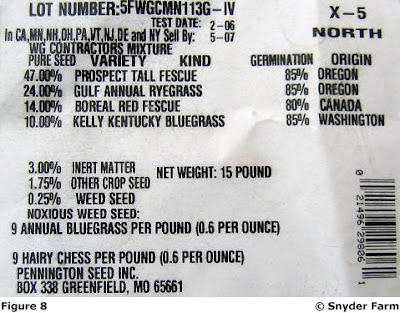Homeowners are educated regarding the importance of selecting appropriate grass seed for large lot properties. This is a daunting challenge, yet the most critical step in establishing a low maintenance, aesthetically pleasing, sustainable lawn. Turfgrass seed contains a genetic factory determining the potential to produce enduring quality turfgrass.
Rutgers Cooperative Extension Turfgrass Specialists provide fact sheets recommending specific varieties of grasses adapted to New Jersey conditions based upon extensive evaluations. Our consumer educational experiences regarding grass seed purchase reveals a “disconnect” making it difficult for homeowners to obtain specific varieties of turfgrass seed.
To address this, we have developed a turfgrass site planted to 10 different commercially available grass seed mixtures readily available to homeowners. These seed mixture plots provide hands-on training for homeowners to observe cool season turfgrasses including: tall fescue, perennial ryegrass, fine fescue and Kentucky bluegrass. We emphasize the importance of selecting varieties of grass for a site considering drainage, shade, budget, aesthetic quality and homeowner expectations.
Rutgers Cooperative Extension Fact Sheet -- FS684 Turfgrass Seed Selection for Home Lawns is available free of charge by clicking here. It provides important information regarding seed selection for home lawns.
 |
Learn the importance of a seed tag; it is a legal document describing the contents. Make certain all the varieties listed meet your criteria. |


